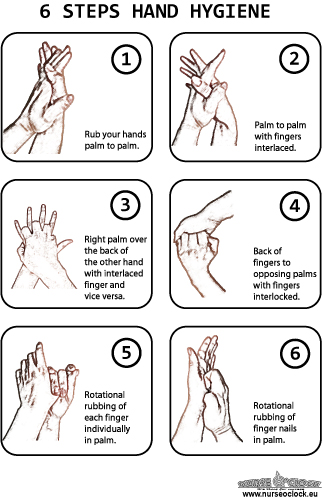|
Hand hygiene is very important in healthcare. Each year, approximately 100,000 patients in the United Kingdom and United States suffer from an hospital infection in which thousands die. Most infectons can be easily prevented..
It is therefore important that if you are working in healthcare that your hands are hygienically clean. This prevents bacteria and micro-organisms being passed on to patients.
Hand jewellery such as rings, bracelets and wrist watches can be sources of micro-organisms. You should not wear these at work.
Our nursing fob watches are great for those that work in health care because they can be attached to clothing and dont require you touch them or to store them in your pocket.
A nurse fob watch has a reverse dial so you can read the time when it is worn attached to your uniform.
We have a wide range of different models, both trendy and more traditional, that also have useful applications like for example a pulsecounter or backlight for those who work night shifts.
The medical shoes and clogs in our range have been chosen because they are specifically designed for the healthcare sector. The shoes and clogs we have available provide a good fit and are extremely comfortable to walk on as well as being designed for working on wards or clnics with features such as anti-static soles.
The following are 5 helpful tips for moments when to clean and disinfect your hands.
1. Before patient contact.
Clean hands before touching the patient to prevent cross contamination.
2. Before any aseptic procedure.
Clean hands before an aseptic tprocedure in order to prevent harmful bacteria invading the body of the patient.
3. After any exposure to bodily fluids.
Clean hands immediately after exposure to body fluids to yourself and your environment. Protecting yourself from bacterias and the patient from cross contaimination.
4. After patient contact
Washing your hands directly after every patient encounter will again protect yourself and the patient.
5. After contact with patient surroundings.
Wash hands after contact with objects and the general surroundings from the patients environment, even if the patient has not had direct contact with you. This prevents cross-contaimination.
The above 5 moments to wash your hands was established by the World Health Organization (WHO)
Washing with just soap and water is not enough. Always use alcohol hand gel to clean your hands. To see how to properly disinfect your hands susing the rubing gel click here to see it done in 6-steps.

|




















